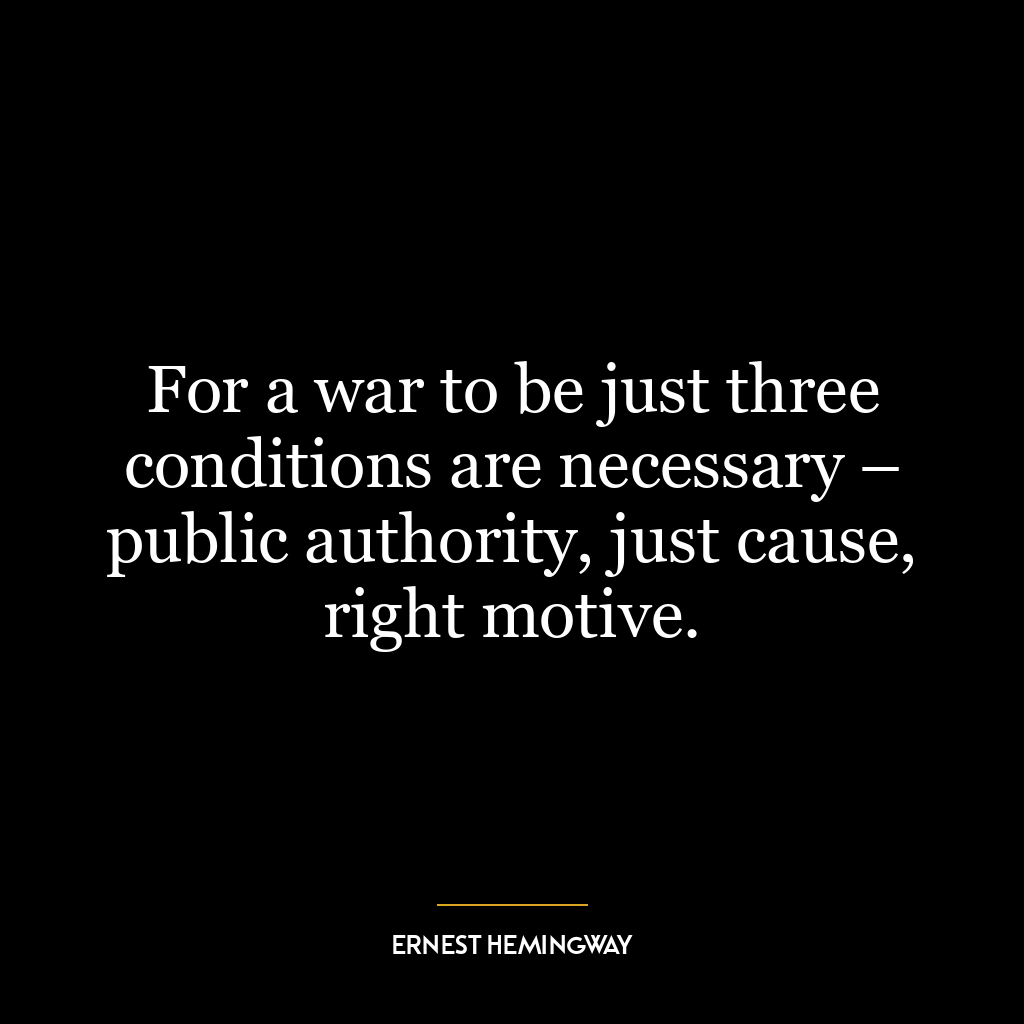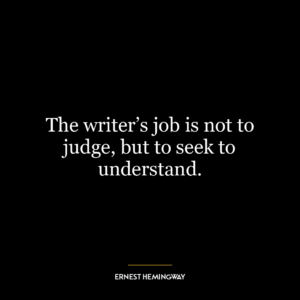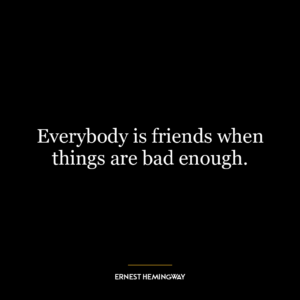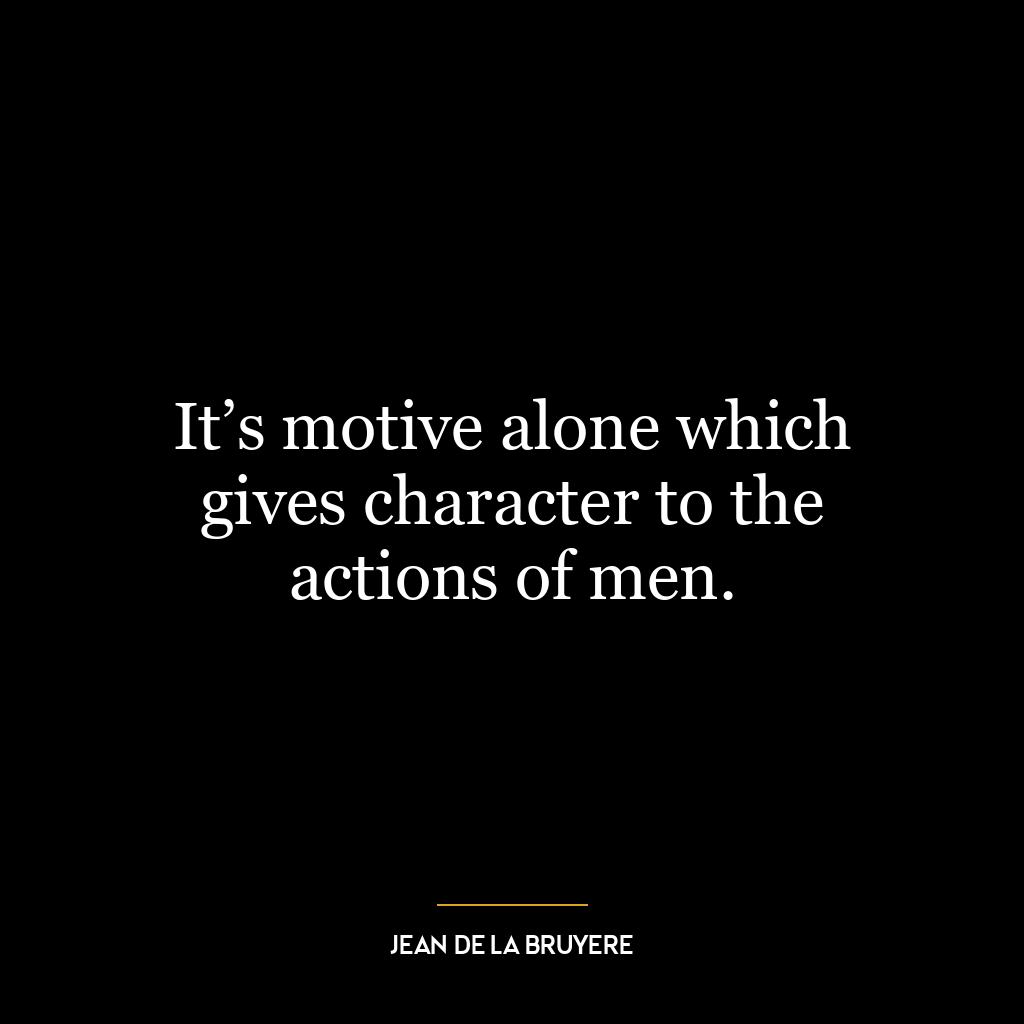This quote by Ernest Hemingway suggests that for a war to be considered just, it must meet three criteria: public authority, just cause, and right motive.
The first condition, ‘public authority,’ implies that a legitimate and recognized authority must sanction the war. This is to prevent any individual or non-authorized group from declaring war for personal or unjust reasons. It also ensures that the decision to go to war is not taken lightly but is a collective decision representing the will of the people.
The second condition, ‘just cause,’ refers to the reason for going to war. A just cause could be self-defense, protecting innocent life, or preserving human rights. The cause must be significant enough to justify the suffering and destruction that war inevitably brings.
The third condition, ‘right motive,’ means that the intentions behind the war must be morally sound. This is to avoid wars driven by greed, power, or revenge. The motive should be to restore peace and justice, not to exploit or oppress others.
In today’s world, this quote can be applied to international conflicts. Before a country decides to engage in war, it must ensure that it has the public’s support, that there is a justifiable reason for the war, and that the motive is not for personal gain or power but for the restoration of peace and justice.
On a personal development level, this quote can help guide our actions and decisions. Before we engage in any ‘battle,’ whether it’s a heated argument or a major life decision, we should consider whether we have the ‘public authority’ (support from those affected by our decision), a ’just cause’ (a valid reason for our action), and the ‘right motive’ (our intentions are good and not selfish or harmful). This can help us make ethical and responsible decisions that contribute to our growth and development.















